To mark IWD2023, Alex Coxon, public relations and marketing consultant for VFX, Kooks London, profiles female leaders and rising VFX talent in the industry
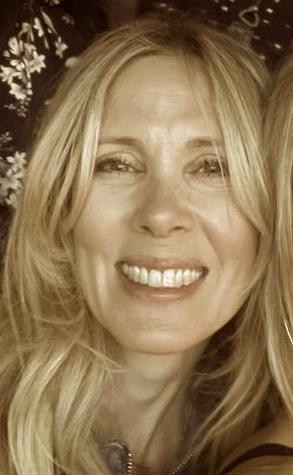
Today is International Women’s Day and the theme is Embrace Equity. In celebrating women in VFX we have asked female leaders at a selection of London’s top facilities if they think there’s equity for women in VFX and, as a celebration of women in the early stages of their careers, we have also asked them to nominate their VFX stars of the future.
There are still far fewer women than men in the VFX so in celebrating these women at the beginning of their VFX careers we want to #embraceequity and, at a time when demand for creative talent is sky-high, communicate to young women the option of a career in VFX.
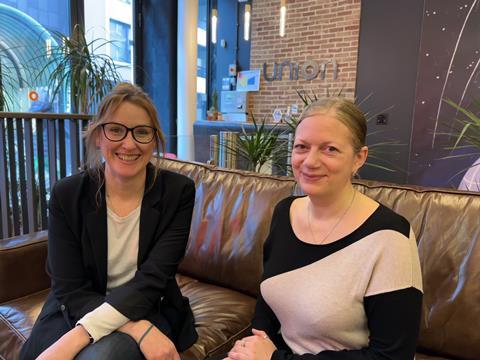
Union VFX
Karen Wand, Senior Compositor
Why have you chosen Jen as a rising star, what are her key achievements in the past year?
I have chosen Jen Carter as I feel she will be inspiring in various ways. She has chosen to retrain from an established career and is also a mother to a young child.
Choosing a new career path or returning to work after having a family is daunting, but as Jen proves, is totally possible. Jen started as a roto prep artist in October 2021, and her talent, enthusiasm, and willingness to learn and help others got her noticed. She was promoted very quickly to compositor which she is currently excelling at. I hope her story can reach those in doubt and inspire them to fulfil their aspirations.
Do you think there’s equity for women in VFX?
I think it is better now than it used to be, and with many studios adopting WFH and hybrid working, we’re seeing even more equity for women in VFX. This way of working helps to level the playing field for those wanting to further their careers whilst having children or family members to care for.
What do you think can be done to overcome this?
The more studios that adopt WFH/hybrid/flexible working policies, the better the equity there will be. It’s important to see the advantage of having a workplace with a balance of genders and ages. The places I have found to work the best have this balance and encourage everyone to work as a team and to swap ideas and knowledge. We work in a competitive industry which can lead to people holding on to their ideas or feeling intimidated and unable to speak up. An environment where everyone feels they are valued and has a voice to speak freely can help everyone, especially women, come forward with their thoughts and ideas.
Rising Star - Jen Carter, Compositor
Why did you decide on a career in VFX?
I did a degree in Photography and Digital Imaging in my early 20s, but didn’t really do much with it, career wise, for about 10 years after I graduated. Then, when I was on maternity leave, I picked up photoshop again as a hobby, creating composite photos for Instagram. I loved doing it so much that I decided I wanted to try and make a career out of it. After some research I realised that my skill set was well aligned with VFX and so I made the decision to retrain and try to join the industry.
How did you enter the industry?
Having a young child and mortgage to consider, I didn’t have the time or money to go back to university full time, so I began teaching myself Nuke, using resources such as YouTube tutorials, FXPHD courses and LinkedIn Learning. Then I found out about Escape Studios’ evening course in Compositing, and signed up for that. The course finished just as the pandemic hit, which meant that opportunities to enter the industry were few and far between, so I used the next year and a half to build my showreel and to work on volunteer projects that I found through word of mouth, and the website Nerdeo. Whilst I was at Escape, Union VFX came in to do a showcase and a talk, and I was really impressed with the type of VFX they do and the work-life balance they offer. I decided that I wanted to work for them, and, when the time was right, I applied. I was lucky enough that they were able to hire me as a roto/prep artist, and I haven’t looked back since!
Do you feel that as a women you have barriers to career progress?
Yes and no. I have been really lucky with working for a studio that believes in a work-life balance, that offers hybrid working and is actively supporting and championing women in the workplace, so my introduction to the industry has been a really positive one. I was really worried about how I would manage working in the industry, not because of being a woman specifically, but because of being a working mum; there can be long hours involved and a lot of the studios are based in London, which involves a commute for me. Over the pandemic the industry adapted and opened up to WFH and hybrid working which made entry into the industry more viable for me as I could find a good balance between parenting and working. I see lack of flexibility as a big barrier to career progress, for all parents to an extent, but specifically to mums who are typically the primary carers for young children.
What are your career aspirations?
My plan is to work my way up the compositing career path, to see how far I get doing something that I love. I would like to try my hand at supervising one day, so I guess that’s the end goal.
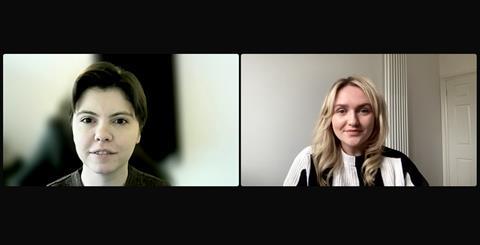
Freefolk
Hannah Dakin, VFX Producer
Why have you chosen Kyra as a rising star and what are her key achievements in the past year?
I’ve chosen Kyra because she’s a dedicated and brilliant CG generalist. She’s really come into her own since being here at Freefolk and she’s my go-to when I have a job that requires a skilled person to work on the camera tracking and layout.
Do you think there’s equity for women in VFX?
I think the film industry in general has had to come a long way with equity for women even as recently as the last 5 years and VFX has also had to work hard on making sure that we’re not a male-dominated art. There’s a lot still to be done but it is so important that we continue to see some really amazing strong female leads across the whole process of VFX. From Heads of companies to Production and Artists.
What do you think can be done to overcome this?
Hire more women. At Freefolk we have an annual internship scheme called Futurefolk, as a direct result of the initiate we have discovered and then employed incredible female VFX talent. Futurefolk will open for submissions later this month and is something I encourage young artists to look into, it’s an incredible opportunity with that absolutely embraces equity.
Rising star - Kyra Nate-Colleen, CG Generalist
Why did you decide on a career in VFX?
I’ve always been a creative person, but I also had a strong interest in science as a kid. The first time that I watched a behind-the-scenes for Jurassic park and learned that I could use art to recreate the science that I loved, I was hooked!
How did you enter the industry?
I went into a university program for VFX and 3D animation. Once I finished my degree, I entered into the industry much the same way most artists do: Networking!
Do you feel that as a woman you have barriers to career progress?
I’m very lucky at my current company, as I haven’t felt any barriers to career progression. However, the same can’t be said for some of my friends at other companies. This is still very much a male-dominated field after all.
What are your career aspirations?
My goal currently is to learn and grow my CG skills as much as possible. Perhaps someday I’ll be a supervisor on a major film project.
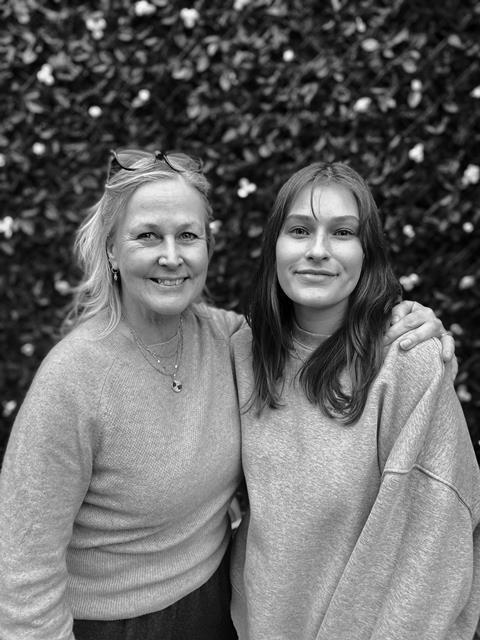
Absolute
Belinda Grew, Production Director at Absolute
Why have you chosen Heidi as a rising star and what are her key achievements in the past year?
Heidi is an Escape Studios 3D graduate and joined us last March to undertake her first full-time role in the industry. In the short twelve months she’s been with us, she’s proved herself to be assertive, creative and incredibly self-driven. A true artist in every sense of the word, her technical talent is unparalleled. Last year, we crafted a stylised beating heart for Lionsgate+, and Heidi’s contribution to the aesthetic using Substance Painter, Maya and ZBrush was imperative to the final execution. On top of all that - she is always looking at new ways to adapt and learn.
Do you think there’s equity for women in VFX?
I’m really lucky to work in a team with such stellar female talent. We have an incredible bunch of driven women working across our production, colour and VFX teams, including several senior roles. That said, it would be brilliant to see even more females in creative roles.
What do you think can be done to overcome this?
It’s about looking for underrepresented talent in new pools and also offering an education. Many students are blissfully unaware of the VFX industry as a whole, so something we try to do is offer authentic insight at schools, universities and events through access to our artists and talent.
Rising Star - Heidi Prescott, Junior CG Artist
Why did you decide on a career in VFX?
I come from a traditional fine arts background, and I’ve always been a huge fan of science fiction. Whilst at university, I wrote my dissertation about the real-world science used in sci-fi films and games, where I got to look closely at the work done between Double Negative and Kip Thorne on Interstellar. I quite quickly became inspired by the potential of visual effects and 3D art.
How did you enter the industry?
After finishing my BA in Illustration Animation, I went on to do a Masters at Escape Studios in 3D VFX Production. Unfortunately, halfway through my studies, covid struck and graduating into the pandemic put a hold on my progress. A year later, I managed to land myself a role as a Runner at Framestore and from there, I found Absolute and got my first role as a Junior CG Artist.
Do you feel that as a women you have barriers to career progress?
I guess as with any predominantly male-dominated industry, it can feel intimidating trying to make your way in as a female junior. The Imposter Syndrome is that much more extreme! However, from what I’ve seen at Absolute - we’re already well on our way to overcoming these barriers. Not only do we have a female Head of CG, but also, since I started not quite a year ago, the number of women in the 3D department has already doubled and this alone has made a big impact. I’d like to hope that other studios are doing the same, and we can see progress towards a more balanced industry.
What are your career aspirations?
As I mentioned above, my roots have always been in traditional arts - the creative side of the job always slightly trumps the technical for me. So, any further progression towards those more artistically reliant aspects of 3D would be a dream for me.
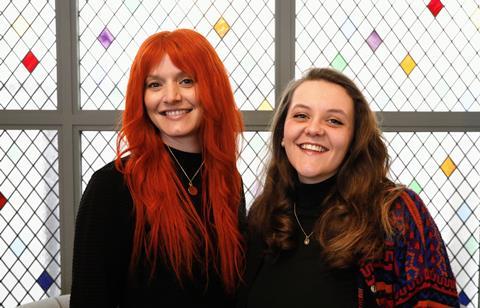
MISC Studios
Lorraine Wood, Head of People and Talent, MISC Studios
Why have you chosen Rebecca as a rising star / what are her key achievements in the past year?
Rebecca joined MISC just over a year ago as a CG Generalist and has been smashing it ever since. She is a fantastic artist and has a great attitude towards her work and team. It’s been a pleasure to watch her progress as an artist over the last year. Becks is also a fantastic ambassador for MISC, representing the company at events and helping to build our community connections with schools promoting VFX and routes into the industry. She is truly a rising star at MISC.
What do you think are the barriers to women working in VFX?
The historical perception of the VFX industry as male-dominated and lacking work-life balance (which proves a difficult environment for women managing parental responsibilities) is at the forefront. Having more women in leadership roles would provide more agency for change, especially regarding flexibility, and feed into opening up spaces for more young women to get into the industry and climb the ladder too. This would be an ideal shift, especially if more young women, from diverse backgrounds, knew the industry was awaiting their passion and intellect. Most VFX studios are connected to several universities, to inspire young women/people into pursuing VFX as a career. But, what we are finding is that at this stage it is too late, as the demographic is still largely white, male, and from more affluent backgrounds. The industry needs to spread its reach further, to a younger audience from all walks of life to see real change in the future.
What does your company do to overcome these?
As a growing company with a majority female senior management team, we believe in a level playing field for all, regardless of gender and background. Having female voices in decision-making positions means we are able to break the status quo and provide a solid platform for the next generation coming into the industry. Increasing visibility and accessibility to VFX to young girls and people of all backgrounds - before university eligibility - is a big focus for MISC. We are working with organisations like Speakers for Schools, which aims to inspire and give young people from disadvantaged schools access to networks and work experience in the creative industry and beyond. We are very proud to be champions of inspiration and opportunity equality for young women and diverse youth.
Rising Star - Rebecca Wall, CG Generalist
Why did you decide on a career in VFX?
I’ve always been a creative person and loved film as an art medium. I also find science fascinating, and enjoy figuring out how things work. While I was still in full-time education there was a tendency to try to push me to choose between my creative and scientific interests. This may affect a lot of young people who experience this kind of duality in their interest and skills. I personally think creative problem solving and the logic involved with maths and science are very similar ways of thinking. VFX is the perfect industry for curious creatives or artsy scientists!
How did you enter the industry?
I’d never considered VFX as a career until I went to university, the thought that I could be involved with making films felt out of reach. I took a more traditional route into the creative industry, studying art, drawing and painting and completed an Art and Design Foundation Degree before deciding to go to Bournemouth University to study Computer Animation. I graduated with First Class honours and started a job as a Runner at Goodbye Kansas. While I was working as a Runner I was asked to pick up several production tasks in 3D, Comp and even the Concept Art Department. I think my background gave me a great foundation and I was promoted to an artist role within 2 months.
Do you feel that as a woman you have barriers to career progress?
From my experience as a 3D artist, I’ve found that my colleagues are often predominantly male, particularly in the smaller companies where there are less employees. It can be very difficult to see yourself in a role you might want to grow into, especially if you don’t see any representation in more senior positions. However, I graduated with so many amazing female artists and I’m now part of a studio that boasts a largely female leadership team, so I am hopeful about seeing more positive changes for women in the industry over time.
A more practical aspect I’ve struggled with in a predominantly male industry, is that I’ve often found the feedback I receive isn’t always constructive, which, after speaking to other female colleagues, seems to be quite common. I’ve come to realise that this may be because women are often not given mentorship opportunities with which to grow their skills or knowledge. Particularly those ‘soft’ skills needed for leadership and management roles. I’ve learnt that actively seeking out that constructive feedback has helped me progress faster than merely accepting the positive feedback.
What are your career aspirations?
I’d like to perhaps find my way back to the Concept Art Department in some capacity and have more of a creative voice in the work that I do. One day I’d love to be a VFX Supervisor, and be an example for young women who come after me.
































No comments yet